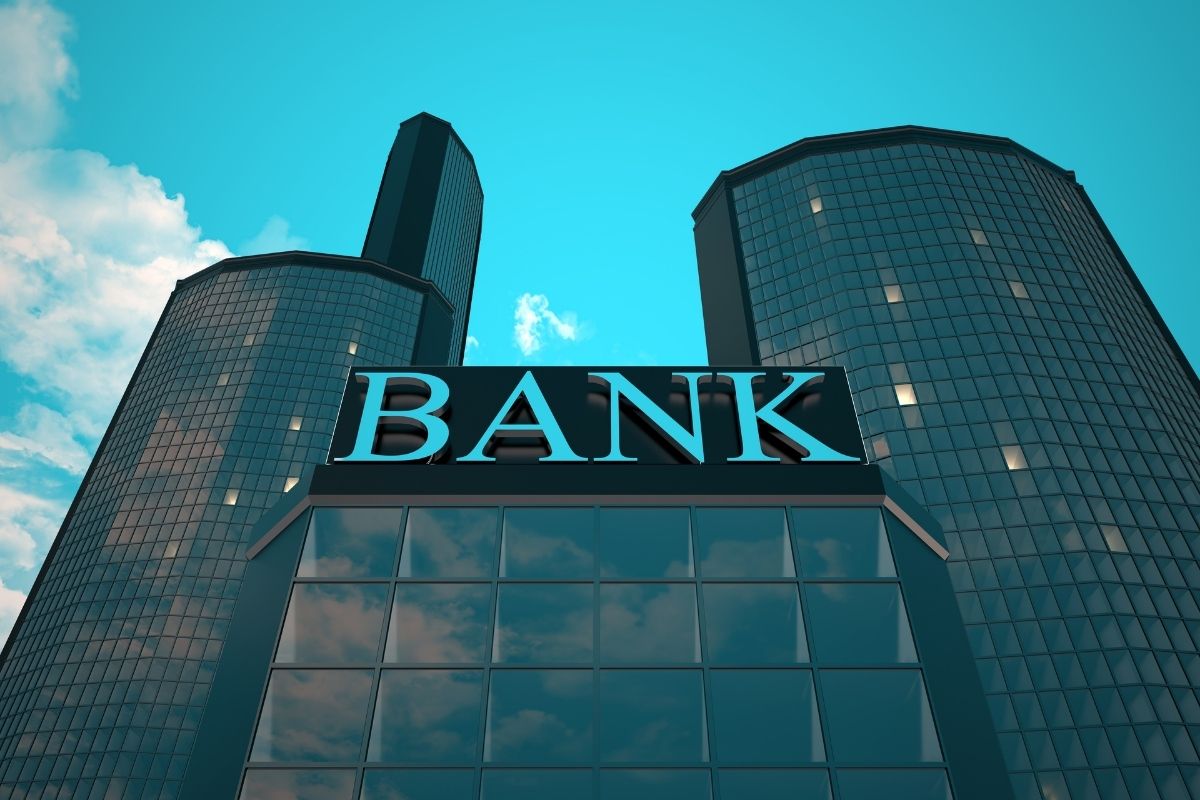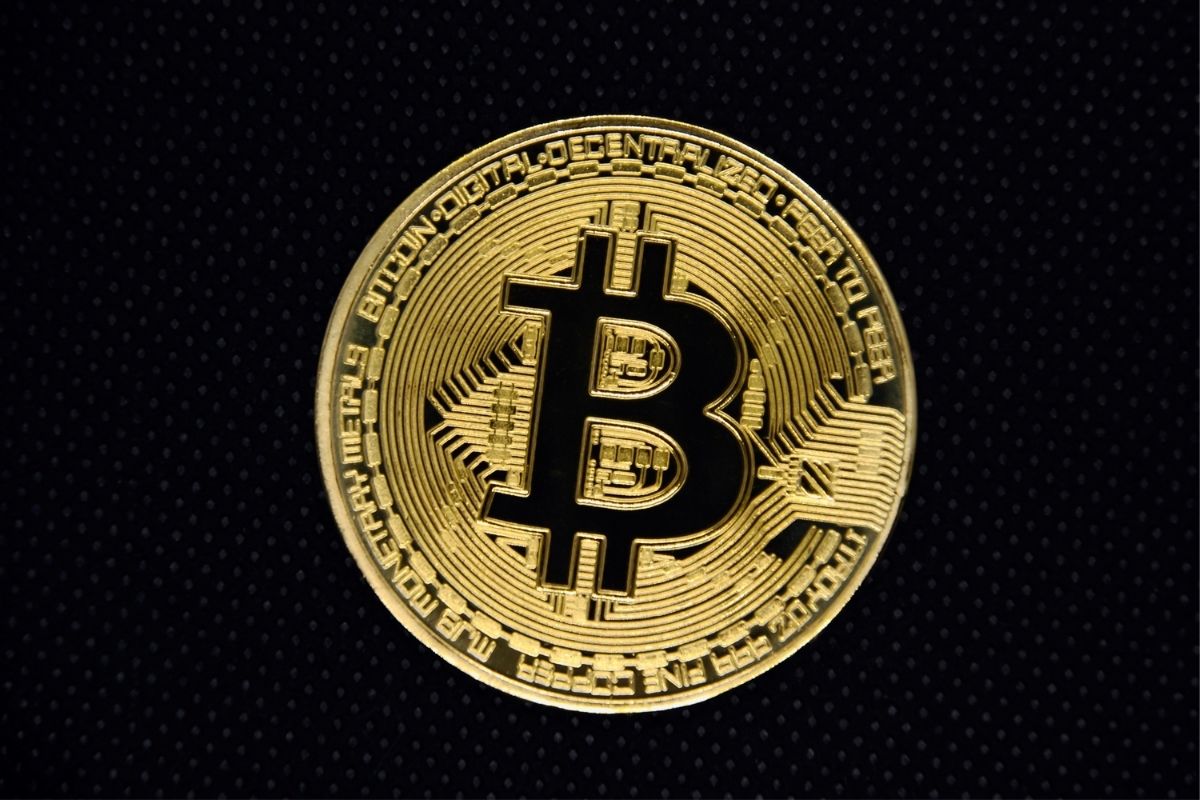Banks have been known as the primary way to store and save your money for thousands of years. However, as technology has improved over the years, banks have become outdated.

Nowadays, saving your money in a bank is a much less secure and inefficient way to protect your finances; in fact, you might even be losing money by saving your money in a bank!
But don’t worry – there are plenty of alternatives to traditional banks that will keep your savings safe without harming your finances.
This guide will take you through the drawbacks of saving your money in a bank and some alternative solutions available, as well as some tips on the best ways to save your money without using a traditional bank.
What’s Wrong With Saving In A Bank?
First things first, what exactly is the problem with saving your money in a bank?
Having some money kept aside as a safety net is a good decision for your financial security, but holding onto it in a single savings account can be problematic. Here are some reasons why:
1) Inflation
Inflation refers to (in broad terms) when the value of money decreases to match increasing prices for goods and services. In our current economy, inflation is a constant and steady threat to your finances, especially those held in savings accounts.
With a high-yield savings account, which has a much higher interest rate compared to other saving accounts, you’ll typically get a yield of around 0.4-0.5% APY.
But with an inflation rate of close to 1.5%, your savings will actually be losing value instead of gaining it. If the inflation rate exceeds the interest on your savings, you’ll end up losing money.
2) Insurance
The more money you have in a saving account, the greater the risk of something happening to your finances.
This isn’t an exaggeration – the money you have in your savings account is insured by the bank, but only up to a certain extent.
The Federal Deposit Insurance Corporation (or FDIC) sets a limit of $250,000 maximum, with any savings you have over that amount aren’t guaranteed to be protected in the event of something happening to your money (for instance, if the bank goes under or there is a security issue with your account).
This won’t be a problem for everybody, as most people won’t have a quarter-million in their savings, but it’s still a cause for concern if you’re keeping larger amounts of money in the bank.
3) Banks Are Unreliable
As you might have guessed by now, traditional banks aren’t as secure as you’d think. While security and technology have improved with time, there are still plenty of ways your savings could be put at risk.
Additionally, using a traditional bank creates a lot of hassle that can’t really be justified considering the lower interest rates and security risks of keeping your savings in a bank.
Whether it comes down to loss from inflation, the bank itself collapsing, or even just being tethered to physical assets without the freedom of online banking, there are just too many factors that make traditional banks impractical in the modern economy.
What Are Some Alternative Ways To Manage Your Savings?

So now that we’ve established that keeping your savings in a bank is a poor financial decision, what are some alternative ways to save your money?
There are a few different options available to you depending on how much money you want to save, whether you’ll need access to your funds quickly, and the forms of financial security you’re interested in. Here are a few examples.
Investing in stocks and shares has become a more popular alternative to conventional savings in recent years, with trading opportunities becoming much more convenient and accessible for anyone interested in investing.
One of the things that attracts people the most to investing in stocks and shares is the potential for these to increase in value over time.
With smart, pragmatic choices, you can greatly increase the value of your savings by investing in the right stocks.
However, this runs the same risks as any investment, where there’s the possibility of the market crashing. This makes investing a more dangerous choice for your savings, but one that can be very lucrative if played correctly.
Cryptocurrency
Cryptocurrencies are a similar form of investment to stocks and shares, involving trading money for an electronic currency that fluctuates in value with the market. There are several forms of cryptocurrency, such as Bitcoin, Ethereum, and Dogecoin.
Crypto comes with many of the same risks as investing in stocks, but has a similar payoff if you make the right choices when you invest.
Additionally, cryptocurrencies are also used as a form of currency that can be used to buy more secure investments, such as the increasingly popular NFTs.
Credit Unions
A credit union is similar to a bank, but is much more reliable and a great alternative to traditional savings methods.
Unlike banks, which are for-profit and usually privately owned, credit unions are nonprofit organizations that offer much better interest rates alongside lower fees.
Where a regular savings account with a bank might offer a 0.5% interest rate (with even high-yield savings accounts offering less than 1%), a credit union can offer anywhere from 1.25% upwards of 2% APY.
Not only that, but credit unions are also insured by the FDIC, so your money is far more secure than an investment. However, storing your savings with a credit union isn’t the perfect solution, as they are less common than banks.
They also don’t have as much potential for increasing the value of your savings as other options, and you’re tied into becoming a member of the credit union if you want to join.
These are just a few of the many alternatives to a traditional savings account with a bank.
While investments can be intimidating and unreliable (especially if you’re investing for the first time), even just a simple change like moving to a credit union can be far more beneficial to your savings than letting them lose their value in a bank.
Final Thoughts
There are plenty of reasons why you shouldn’t keep your savings in a bank.
Whether it’s their unreliability or the risk of your savings being eaten by inflation, moving away from traditional bank savings accounts is a great choice if you want to make sure your savings are secure.
So if you’re interested in switching how you save, look into some alternatives in this article.
Stocks, bonds, and other investments are a great way to increase the value of your savings if you’re willing to take a risk, while changing the type of savings account you use can give you a much more stable and secure form of savings that won’t risk your money.
Whatever you choose to do, be sensible with your savings, and you’ll always have some money for a rainy day!
Financial Disclaimer
This post contains sponsored advertising content. This content is for informational purposes only and not intended to be investing advice.
The investing information provided on this page is for educational purposes only. compundingstacks.com does not offer advisory or brokerage services, nor does it recommend or advise investors to buy or sell particular stocks or securities.
The owner(s) of this blog is compensated to provide opinion on products, services, websites, and other topics. The owner(s) may be compensated if you click on a provided link and purchase or sign up for a service. Any product claim or advice about a product or service should be verified with the manufacturer, provider, or party in question. Copyright Compounding Stacks © 2022
- Is Coinbase Safe For Beginners? - March 25, 2022
- Are Penny Stocks Good For Beginners? - March 25, 2022
- Why You Shouldn’t Save Your Money In A Bank? - March 25, 2022
